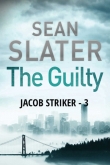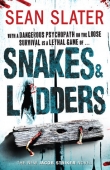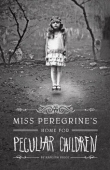
Текст книги "Defending Jacob"
Автор книги: William Landay
Соавторы: William Landay
Жанр:
Криминальные детективы
сообщить о нарушении
Текущая страница: 14 (всего у книги 25 страниц)
20
One Son Was Here, the Other Was Gone
The market closest to our house was a Whole Foods, and we loathed it. The wastefulness of all those pyramids of immaculate fruit and vegetables which, we knew, could only be created by throwing away enormous amounts of cosmetically imperfect food. The bogus earthiness, an elaborate pretense that Whole Foods was something other than a luxury store. And of course the prices. We had always avoided shopping there because of the high prices. Now, with Jacob’s case threatening to bankrupt us, the thought of it seemed particularly ludicrous. We had no business shopping there.
We were already ruined financially. We were not rich people to begin with. We had been able to live in this town only because we had bought in when prices were low and because we were leveraged up to our eyeballs. Now Jonathan’s fee was already into six figures. We had spent all of Jacob’s college money on it and begun dipping into retirement savings. Before the case was over, I was sure, we would be wiped out, borrowing against the house to pay the bills. I knew, also, that my career as a prosecutor was over. Even if the verdict was “not guilty,” I would never be able to walk into a courtroom without trailing the stink of the accusation. Maybe after the case was ended Lynn Canavan would do the right thing and offer to keep me on the payroll, but I could not stay there, not as a charity case. Laurie might be able to go back to teaching, but we would not be able to pay the bills on her income alone. This is an aspect of crime stories I never fully appreciated until I became one: it is so ruinously expensive to mount a defense that, innocent or guilty, the accusation is itself a devastating punishment. Every defendant pays a price.
There was another reason for us to avoid Whole Foods as well. I was determined not to be seen around town, certainly not to do anything that might suggest we were taking the case lightly. It was a question of image. I wanted people to see our family as shattered, because we were shattered. When the jury pool filed into the courtroom, I did not want any of them to harbor some vague memory of the Barbers luxuriating in pricey shops while the Rifkin boy lay buried in the ground. An unflattering mention in the newspaper, a fanciful rumor, a baseless impression-these things could easily tip the jury against us.
But we went to Whole Foods one evening, all three of us, when time was short and we were sick of all the wariness and waiting, and we were hungry. It was just before Labor Day. The town had emptied out for the holiday.
And what a relief it was to be there. We were lulled by the wonderful, narcotic ordinariness of shopping at the market. We were so like our old selves-Laurie the competent shopper and meal-planner, me the bumbling husband grabbing the odd item here or there on a whim, Jacob the kid whimpering for something to eat right away, before we reached the register-that we forgot ourselves. We strolled up and down the aisles. We enjoyed the packages banked up around us, made little jokes about the organic foods on the shelves. At the cheese section Jacob made a joke about the smell of a potent Gruyere that they were offering customers to taste and the possible gastric consequences of eating too much of it, and we all laughed, all three of us, not because the joke was especially funny (though I am not above a good fart joke) but because Jacob had made a joke at all. Over the summer he had become so silent, such an enigma to us, that we celebrated just to see our little boy peeking out at us again. He smiled and it was impossible to believe he was the monster everyone seemed to think he was.
We were still smiling when we came out of this last aisle into the cash register area at the front of the store. All the aisles drained here, and the shoppers eddied around, sorting themselves into checkout lines. We took our place at the end of a short line with just a couple of people in front of us. Laurie stood with her hand on the push-bar of the cart. I stood beside her. Jacob was behind us.
Dan Rifkin guided his cart into the checkout line beside ours. He was five feet away, if that. For a moment he did not see us. His sunglasses rested on the top of his head, pillowed in his hair. He wore neatly pressed khaki shorts and a tucked-in polo shirt. His belt was canvas with a blue band on which was embroidered a pattern of little ships’ anchors. He wore thin-soled loafers without socks. It was the sort of country-club-casual style that I have always thought looks ridiculous on a grown man. A naturally formal person often looks odd when he tries to dress down, just as a natural slob looks out of place in a suit. Dan Rifkin was not the sort of guy who looked at home in short pants.
I turned my back to him and whispered to Laurie that he was beside us.
Her hand went over her mouth. “Where?”
“Right behind me. Don’t look.”
She looked.
I turned back to find Rifkin’s wife, Joan, had appeared beside him. She had some of her husband’s miniature, doll-like quality. She was small and slim and had a lovely face. Her frosted blond hair was cut in a pixie. She must have been very beautiful once-she still had the vivacious, actressy manner of a woman who knows how to use her looks-but she was fading now. Her face was gaunt and her eyes bugged slightly, with years, with stress, with grief. I had met her several times over the years, before all this happened; she never remembered who I was.
Now the two of them stared at us. Dan hardly moved. His keys dangled from his hooked index finger without jangling. His consternation or surprise or whatever he was feeling barely registered on his face.
Joan’s face was more animated. She glared, offended by our presence here. No one had to say anything. It was a matter of numbers. We were three, they were two. One son was here, the other gone. The simple fact of Jacob’s continued existence must have seemed profane to them.
It was all so painfully obvious and awkward that the five of us stood there dumbstruck for a moment, gaping at each other while the commotion of the market went on around us.
I told Jacob, “Why don’t you go wait in the car.”
“Okay.”
He began to move off.
The Rifkins still stared.
I had decided immediately not to say anything unless they initiated the conversation. It was impossible to imagine what I could say that would not be painful or tactless or provocative.
But Laurie wanted to speak. Her desire to walk over to them was palpable. With great effort, she was restraining herself. I find it touching and almost naive how complete is my wife’s faith in communication and connection. To her, there is virtually no problem that does not benefit from a little talk-talk-talk. What is more, she genuinely believed that the case was somehow a shared misfortune, that our family was suffering also, that it was no easy thing to see your son wrongly accused of murder, to see his life ruined for no good reason. The tragedy of Ben Rifkin’s murder did not lessen the tragedy of Jake’s own victimization. I don’t think Laurie meant to say any of this. She is much too empathetic. I think she just wanted to communicate her sympathy somehow, to connect, with the usual banality of “I’m so sorry for your loss” or some such.
Laurie said, “I-”
“Laurie,” I cut her off, “go wait in the car with Jacob. I’ll pay for the stuff.”
It did not cross my mind simply to leave. We had a right to be there. We had a right to eat, surely.
Laurie moved past me toward Joan Rifkin. I made a halfhearted effort to stop her but there was never any way to talk my wife out of something once she decided to do it. She was a mule. A sweet, empathetic, brilliant, sensitive, lovely woman, but a mule just the same.
She walked right up to them and made a gesture with her hands, extending them palms up as if she wanted to take Joan’s hands in hers, or maybe just signaling that she did not know exactly what to say, or that she carried no weapons.
Joan met this gesture by crossing her arms.
Dan raised his own arm slightly. He looked like he was getting ready to hold Laurie off if for some reason she attacked.
Laurie said, “Joan-”
Joan spat in her face. She did it very suddenly, without bothering to work up the saliva in her mouth, and not much came out. It was more of a gesture, perhaps the gesture she thought was appropriate in the circumstances-but then, who could ever be prepared for circumstances like these?
Laurie covered her face with both hands, wiped the spit with her fingers.
“Murderers,” Joan said.
I went to Laurie and put my hand on her shoulder. She was as still as stone.
Joan glowered up at me. If she were a man or if she was less genteel, maybe she would have gone after me. She quivered with hatred like a tuning fork. I could not hate her back. I could not be angry with her, could not find much feeling at all for her except sadness, sadness for all of us.
I said to Dan, “Sorry,” as if there was no point in talking to Joan and it was up to us men to handle the emotions that our wives could not.
I took Laurie’s hand and led her out of the store with elaborate politeness, saying softly over and over “Excuse us… sorry… excuse us” as we squeezed past the other shoppers and their carts and out into the parking lot where no one recognized us and we were returned to the semi-anonymity that we still enjoyed in those last few weeks before the trial, before the deluge.
“We didn’t get our things,” Laurie said.
“It’s okay. We don’t need them.”
21
Beware the Fury of a Patient Man
It is the happy lot of defense lawyers to see the good in people. No matter how wicked or incomprehensible the crime, no matter how overwhelming the evidence of guilt, the defense lawyer never forgets his client is a human being like the rest of us. That, of course, is what makes every defendant worth defending. I cannot tell you how many times a lawyer has suggested to me that his baby-shaker or wife-beater “really isn’t a bad guy.” Even the swaggering mercenaries with their gold Rolexes and alligator briefcases harbor this tiny redeeming fleck of humanism: every criminal is still a man, a complex of good and bad, fully deserving of our empathy and mercy. To cops and prosecutors, things are not so sunny. We have the opposite impulse. We are quick to see the stain, the worm, the latent criminality in even the best people. Experience tells us the nice man next door is capable of anything. The priest may be a pedophile, the cop a crook; the loving husband and father may harbor a filthy secret. Of course, we believe these things for the same reason the defender believes as he does: people are only human.
The more I watched Leonard Patz, the more I became convinced he was Ben Rifkin’s killer. I followed him on his morning rounds, to Dunkin’ Donuts then to work at Staples, and I was there when he came out of work too. His Staples uniform made him look ridiculous. The red polo shirt hugged his flabby torso too tightly. Khaki pants accentuated the sort of bulging pelvis that Jacob and his pals call a “front butt.” I did not dare go into the store to see what they had Patz selling. Electronics, probably, computers, cell phones-he looked like the type. Of course it is the prosecutor’s privilege to choose his defendant, but I simply could not understand why Logiudice preferred Jacob to this man. Maybe it is a parent’s wishful thinking or a prosecutor’s cynicism, but I still do not understand it, even now.
By August, I had been following Patz around for weeks, in the mornings and evenings, before and after his workday. Matt Magrath’s information was proof positive, as far as I was concerned, but it would not fly in court. No jury would ever accept his word. I needed harder evidence, something that did not rely on that shifty kid. I do not know what exactly I was hoping to see by trailing Patz around like this. A stumble. A return to the scene, a late-night drive to dispose of evidence. Anything.
In the event, Patz did nothing especially suspicious. For that matter, he did not do very much at all. In his off hours, he seemed content to loaf in shops or hang out in his apartment near Cold Spring Park. He liked to eat at the McDonald’s on Soldiers Field Road in Brighton, where he would order at the drive-through and eat in his plum-colored car while listening to the radio. Once, he went to the movies by himself. None of it was remotely significant. But nothing he did ever shook my certainty that Patz was the one. The outrageous possibility that my son would be sacrificed to save this man became an obsession. I grew more and more addled the longer I followed him, stared at him, the longer I dwelt on this idea. The dullness of his life, far from dispelling my suspicion, only infuriated me all the more. He was hiding, laying low, waiting for Logiudice to do his work for him.
On a sultry Wednesday evening in August, I followed directly behind Patz’s car as he made his way home through Newton Centre, a shopping area and village green where several busy roads intersect. It was around five o’clock and still sunny. Traffic was lighter than usual (this is the sort of town that empties out in August) but still bumper-to-bumper. Most drivers had their car windows rolled up tight against the humid heat. A few, including Patz and me, kept our windows open and hung our left elbows out for a little relief. Even the ice-cream eaters on the sidewalk outside J.P. Licks had a limp, defeated look.
At a red light I nuzzled in behind Patz’s car. I clenched the steering wheel tight.
Patz’s brake lights flickered and his car lurched slightly.
I lifted my foot off the brake. I don’t know why. I was not sure how far I intended to take it. But I was happy, for the first time in a long time, as my car rolled forward and bumped his with a satisfying chunk.
He looked at me in his rearview mirror and raised his hands. What was that!
I shrugged, backed the car up a few feet, then knocked his bumper again, a little harder this time. Chunk.
Through his rear window, I saw his shadowy shape put up its hands again in exasperation. I watched him shift the car into park, open the door, and hoist his bulk up out of the car.
And I became a different person. A different person, yet I moved and acted with a naturalness and fluency that was wild and unfamiliar, and thrilling.
I was out of the car and moving toward him before I was quite aware of my own motion, without ever actually deciding to confront him.
He raised his hands in front of his chest, palms forward, and his face registered surprise.
I gathered his shirt up in my hands and thrust him against his car, bending him backward. I buried my snout in his face and growled, “I know what you did.”
He did not respond.
“I know what you did.”
“What are you talking about? Who are you?”
“I know about the boy in Cold Spring Park.”
“Oh my God, you’re crazy.”
“You have no idea.”
“I don’t know what you’re talking about. Honest. You’ve got the wrong guy.”
“Yeah? Do you remember going to meet Ben Rifkin in the park? Do you remember telling Matt Magrath you were going to do that?”
“Matt Magrath?”
“How long were you watching Ben Rifkin, how long were you stalking him? Did you ever talk to him? Did you bring your knife that day? What happened? Did you offer him the same deal you had with Matt, a hundred bucks for a feel? Did he turn you down? Did he make fun of you, call you names? Did he try to beat you up, push you around, scare you? What set you off, Leonard? What made you do it?”
“You’re the father, aren’t you?”
“No, I’m not Ben’s father.”
“No, the one that got charged. You’re the father. They told me about you. The DA said you’d try to talk to me.”
“What DA?”
“Logiudice.”
“What did he say?”
“He said you had this idea in your head and you might try to talk to me someday, and I shouldn’t talk to you. He said you were…”
“What?”
“He said you were crazy. He said you might be violent.”
I let go of Patz and stepped back.
I was surprised to find I had lifted him off the ground. He slid down the side of his car, landing on his heels. His red Staples uniform shirt was pulled up out of his Dockers khakis, baring an expanse of round belly, but he did not dare straighten himself up yet. He eyed me cautiously.
“I know what you did,” I assured him, coming back into myself. “No way my kid is going away because of you.”
“But I didn’t do anything.”
“Yes, you did. Yes, you did. Matt told me all about it.”
“Please just leave me alone. I didn’t do anything. I’m just doing what the DA told me to do.”
I nodded, feeling exposed and out of control. Embarrassed. “I know what you did,” I said again, low and certain, as much to myself this time as to Patz. The phrase comforted me, like a little prayer.
Mr. Logiudice: And did you continue following Leonard Patz after that day?
Witness: Yes. Mr. Logiudice: Why? What on earth did you hope to accomplish?
Witness: I was trying to solve the case, to prove Patz was the murderer.
Mr. Logiudice: You really believed that?
Witness: Yes. You made the wrong call, Neal. The evidence pointed at Patz, not Jacob. That was your best case. You were supposed to follow the evidence wherever it led. That was your job.
Mr. Logiudice: Boy, you don’t give up, do you?
Witness: You don’t have kids, do you, Neal?
Mr. Logiudice: No.
Witness: No, I didn’t think so. If you did, you’d understand. Did you tell Patz not to talk to me?
Mr. Logiudice: Yes.
Witness: Because you knew if the jury heard the evidence against Patz, they never would have believed Jacob did it. You were loading the dice, isn’t that right?
Mr. Logiudice: I was prosecuting my case. I was prosecuting the suspect I believed did it. That’s my job.
Witness: Then why were you so afraid to let the jury hear about Patz?
Mr. Logiudice: Because he didn’t do it! I was doing what I thought was right, based on the evidence I had at the time. Andy, look, you’re not the one asking questions here. That’s not your job anymore. It’s mine.
Witness: It’s just strange, isn’t it? Telling a guy like that not to talk to the defense. It’s burying exculpatory evidence, isn’t it. But you had your reasons, didn’t you, Neal?
Mr. Logiudice: Would you at least– Please. Call me Mr. Logiudice. I’ve earned that, at least.
Witness: Tell them, Neal. Go on, tell them how you knew Leonard Patz. Tell them what the jury never heard. Mr. Logiudice: Let’s move on.
22
A Heart Two Sizes Too Small
Mr. Logiudice: Directing your attention to a document that’s been marked Exhibit, um, 22, do you recognize this document?
Witness: Yes, it’s a letter from Dr. Vogel to Jonathan Klein, our defense lawyer.
Mr. Logiudice: And the date?
Witness: It’s dated October 2.
Mr. Logiudice: Two weeks before the trial.
Witness: Yes, give or take.
Mr. Logiudice: The bottom of the letter says, “CC: Mr. and Mrs. Andrew Barber.” Were you shown this letter at the time?
Witness: Yes, I was.
Mr. Logiudice: But your attorney never turned over this document in discovery, is that correct?
Witness: Not as far as I know.
Mr. Logiudice: Not as far as anyone knows.
Witness: Don’t testify, Neal. Come on, ask a question.
Mr. Logiudice: All right. Why was this document never turned over to the prosecution?
Witness: Because it’s privileged. It’s a doctor-patient communication and it’s work product, which means it was created by the defense team as part of its trial preparation. That makes it confidential. It’s exempt from discovery.
Mr. Logiudice: But you’ve produced it now. And in response to an ordinary boilerplate discovery order. Why? Are you waiving the privilege?
Witness: The privilege isn’t mine to waive. But it doesn’t matter now, does it? The only thing that matters now is the truth.
Mr. Logiudice: Here we go. This is the part where you tell us how you believe in the system and all that.
Witness: The system is as good as the people running it, Neal.
Mr. Logiudice: Did you believe in Dr. Vogel?
Witness: Yes. Completely.
Mr. Logiudice: And you have confidence in her now? Nothing has happened to shake your faith in the doctor’s observations?
Witness: I trust her. She’s a good doctor.
Mr. Logiudice: So you don’t dispute anything in this letter?
Witness: No.
Mr. Logiudice: And what was the purpose of this letter?
Witness: It was an opinion letter. It was meant to summarize the doctor’s findings about Jacob so that Jonathan could make a decision about whether to call Dr. Vogel as a witness and whether he wanted to get into this whole subject at all, the subject of Jacob’s mental health.
Mr. Logiudice: Would you read the second paragraph to the grand jury, please.
Witness: “The client presents as an articulate, intelligent, polite fourteen-year-old boy. His manner is shy and he is somewhat reticent in conversation, but nothing in his conduct suggests a compromised ability to perceive, recall, or relate the incidents involved in this case or to assist trial counsel in making informed, intelligent, well-reasoned decisions pertaining to his own legal defense.”
Mr. Logiudice: What the doctor is saying there is that in her professional opinion Jacob was competent to stand trial, isn’t that right?
Witness: That’s a legal opinion, not a clinical one. But yes, obviously the doctor is aware of the standard.
Mr. Logiudice: And what about criminal responsibility? The doctor addresses that question in her letter as well, doesn’t she? Look at paragraph three.
Witness: Yes. Mr. Logiudice: Read it, please.
Witness: Quote: “There is insufficient evidence as yet to conclude definitively whether Jacob adequately perceives the distinction between right and wrong and can adequately govern his behavior to act according to that distinction. There may be sufficient evidence, however, to support a colorable argument relying on genetic and neurological evidence based on a theory of ‘irresistible impulse.’ ” Unquote.
Mr. Logiudice: “There may be sufficient evidence,” “a colorable argument”-that’s a lot of hedging, isn’t it?
Witness: It’s understandable. People were bound to be skeptical about making excuses for murder. If the doctor took the stand and made that argument, she’d better be damn sure.
Mr. Logiudice: But she did say, in fact, at least at this stage, that it was possible? It was a “colorable argument”? Witness: Yes.
Mr. Logiudice: A murder gene? Witness: She never used that term. Mr. Logiudice: Would you read the paragraph labeled “Diagnosis Overview”? Page three, top of the page.
Witness: Neal, do you want me to read the whole thing to them? The document is already in evidence. They can read it for themselves.
Mr. Logiudice: Please. Humor me.
Witness: Quote: “Jacob exhibits behavior and expresses thoughts and inclinations, both in private session and in his history outside direct clinical observation, that would support any or all of the following diagnoses in isolation or in combination: reactive attachment disorder, narcissistic personality disorder”-look, if you’re asking me to comment on a psychiatrist’s clinical diagnosis-
Mr. Logiudice: Please, just one more. Page four, paragraph two, the sentence I’ve indicated with a sticky note.
Witness: Quote: “The best way to summarize this entire constellation of observations-lack of empathy, difficulties with impulse control, occasional cruelty-is to say that Jacob resembles the Grinch of Dr. Seuss: ‘His heart is two sizes too small.’ ” Unquote.
Mr. Logiudice: You look upset. I’m sorry. Does that upset you?
Witness: Jesus, Neal. Jesus.
Mr. Logiudice: Is this how you felt when you first heard that your son had a heart that was two sizes too small?
[The witness did not respond.]
Mr. Logiudice: Is this how it felt?
Witness: Objection. Relevance.
Mr. Logiudice: Noted. Now answer the question, please. Is this how it felt?
Witness: Yes! How do you think I felt, for Christ’s sake! I’m his father.
Mr. Logiudice: Exactly. How is it that you lived with a boy who had the capacity for this sort of violence all these years and you never even noticed it? Never suspected one thing was out of place? Never lifted a finger to address these psychological problems?
Witness: What do you want me to say, Neal?
Mr. Logiudice: That you knew. You knew, Andy. You knew.
Witness: No. Mr. Logiudice: How is that possible, Andy? How could you not know? How is that even possible?
Witness: I don’t know. I only know it’s the truth.
Mr. Logiudice: Again with that. You sure do stick to your talking points, don’t you? You keep saying “the truth, the truth, the truth,” as if saying it makes it so. Witness: You don’t have kids, Neal. I don’t expect you to understand. Mr. Logiudice: Enlighten me. Enlighten all of us. Witness: You can’t see your own kids straight. No one can. You love them too much, you’re too close. If you had a son. If you had a son. Mr. Logiudice: Do you need a minute to gather yourself?
Witness: No. Have you ever heard of confirmation bias? Confirmation bias is the tendency to see things in your environment that confirm your preconceived ideas and not see things that conflict with what you already believe. I think maybe something like that happens with kids. You see what you want to see.
Mr. Logiudice: And what you don’t want to see, you choose not to?
Witness: Not choose. You just don’t see it.
Mr. Logiudice: But in order for that to be true, for it to be confirmation bias, you would have to genuinely believe in the thing. Because you’re talking about an unconscious process. So you would have to genuinely believe in your heart of hearts that Jacob was an ordinary kid, that his heart was not two sizes too small, correct?
Mr. Logiudice: But in this case, that couldn’t be true, could it? Because you had reason to be on the lookout for signs of trouble, didn’t you? Your whole life-your whole life, Andy-you’ve been aware of the possibility, isn’t that true?
Witness: No, it is not.
Mr. Logiudice: No? Did you forget who your father was?
Witness: Yes. For thirty years or so, I forgot. I meant to forget, I purposely forgot, I was entitled to forget.
Mr. Logiudice: You were entitled?
Witness: Yes. It was a personal matter.
Mr. Logiudice: Was it, though? You never really believed that. You forgot who your father was? Forgot what your son might become if he turned out like Grandpa? Come on, you don’t forget a thing like that. You knew. “Confirmation bias”!
Witness: Step back, Neal.
Mr. Logiudice: You knew.
Witness: Step back. Get out of my face. Act like a lawyer, for once.
Mr. Logiudice: Well, now. There’s the Andy Barber we all know. Back in control of yourself. Master of self-control, master of self-delusion. Master actor. Let me ask you something: those thirty years when you forgot who you are, where you came from, you were telling yourself a story, weren’t you? For that matter, you were telling everyone a story. In a word, you were lying.
Witness: I never said anything that was not true.
Mr. Logiudice: No, but you left a few things out, didn’t you? You left a few things out. [The witness did not respond.]
Mr. Logiudice: And yet now you want the grand jury to believe every word you say.
Witness: Yes.
Mr. Logiudice: All right, then. Go on with your story.








